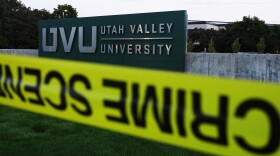-
A third panther death is being reported by the Florida Fish and Wildlife Commission, the suspected victim of a vehicle collision. The injured 3-year-old, male Florida panther was rescued on January 28 in Polk County in Central Florida by ZooTampa, at the direction of the FWC, for treatment and assessment by their veterinary team.
-
Most people who won permits to participate in the first Florida black bear hunt since 2015 came away empty-handed. Jeff Nemeth wasn’t one of them — he and his son harvested a 503-pound bear on a private plot in the Panhandle last month. Nemeth, 57, of Inverness, estimated he put in 100 hours of research to prepare and spent $4,000 to $5,000 in travel and gear fees. He plans to shell out an additional $5,000 to an Ocala taxidermist for a full-body mount of the 8-foot-3 animal.
-
For the first time in a decade, a black bear hunt has returned to Florida. FWC reports that they received over 163,000 applications for the chance to win one of only 172 bear tags.
-
In a closely watched dispute about First Amendment rights, attorneys for a biologist who was fired because of a social media post after the murder of conservative leader Charlie Kirk squared off against lawyers for the state on Monday. Biologist Brittney Brown, who worked for the Florida Fish and Wildlife Conservation Commission studying shorebirds and seabirds in the area of Tyndall Air Force Base in the Panhandle, alleges in the lawsuit that her firing on Sept. 15 — five days after Kirk was shot during an appearance at a Utah university — violated her First Amendment rights.
-
Paul Carlson of Palm Beach County won the title of Lionfish King in this year's FWC Lionfish Challenge, taking out 1,542 of the invasive species.
-
A rescue crew at the Fort Myers Beach U.S. Coast Guard station saved seven boaters Sunday night after a vessel collision between a 36-foot vessel and barge near Fort Myers Beach.The USCG rescue crew safely transferred all seven boaters to awaiting emergency medical service personnel in stable condition at the station.
-
-
Multiple sightings of a bear on the main part of the FGCU campus in recent days has prompted the placement of a trap on campus.The University Police Department urged people stay clear of the trap. UPD asked people not approach the trap, but report — from afar — if anything is seen inside.
-
The Florida Fish and Wildlife Conservation Commission is asking the public to report sightings of the elusive rainbow snake (Farancia erytrogramma), a nonvenomous species whose population has declined in recent decades.
-
The first black bear hunt in Florida in a decade takes place in December under a rule adopted Wednesday by state wildlife officials. This is despite strong opposition to the eventual use of dogs and hunting the animals in baited locations. The Florida Fish and Wildlife Conservation Commission voted unanimously in favor of the plan during a meeting that drew 168 people. The public hearing took place in the Panhandle town of Havana. Opponents called the hunt cruel, unnecessary and an excuse for hunters to bag a trophy animal. They say the real issue is the encroaching human population in bear habitat as Florida continues to grow.
Play Live Radio
Next Up:
0:00
0:00
Available On Air Stations










